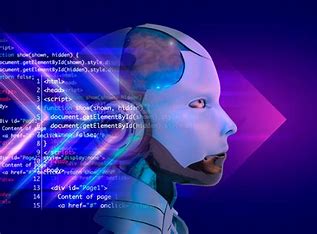
The Future of Coding: How AI is Transforming Software Development
Created on 5 December, 2024 • Technolgy • 59 views • 4 minutes read
In the rapidly evolving world of technology, artificial intelligence (AI) is reshaping the way we approach software development.
1. AI-Assisted Code Generation
One of the most exciting advancements in AI for developers is code generation. Tools like GitHub Copilot and Tabnine use machine learning to suggest entire lines of code, functions, or even full algorithms based on natural language prompts. These tools can speed up the coding process and reduce the amount of manual work required.
- GitHub Copilot: Powered by OpenAI’s Codex model, GitHub Copilot helps developers by suggesting relevant code snippets in real-time, based on the context of the code being written.
- Tabnine: Tabnine is an AI-powered code completion tool that integrates with popular IDEs like VS Code, IntelliJ, and more, helping developers write faster and with fewer errors.
Benefits:
- Speeds up development time
- Reduces repetitive coding tasks
- Helps developers learn new frameworks and languages quickly
Cost: GitHub Copilot offers a free version with a paid plan starting at $10/month. Tabnine offers both free and paid plans, with premium plans starting at $12/month.
2. Predictive Coding and Error Detection
AI-driven predictive coding tools are becoming an essential part of modern software development. These tools use machine learning to analyze large datasets and predict potential issues in code before they occur. For example, tools like DeepCode and Snyk help developers identify vulnerabilities, bugs, and other issues in their code, significantly reducing debugging time.
- DeepCode: DeepCode uses AI to review code for bugs, security vulnerabilities, and bad practices by learning from millions of lines of code. It’s like having an extra set of eyes reviewing your work 24/7.
- Snyk: Snyk is an AI-powered security platform that focuses on identifying and fixing vulnerabilities in code, helping developers build secure applications from the start.
Benefits:
- Helps find bugs faster
- Improves software security
- Predicts potential issues early in the development process
Cost: DeepCode offers a free version for individual developers, with premium plans starting at $12/month. Snyk offers a free plan, with paid plans starting at $24/month.
3. AI in Automated Testing
Testing is one of the most time-consuming and critical aspects of software development. AI-powered testing tools can automate the testing process, helping developers identify and resolve issues quickly. Tools like Test.ai and Mabl use machine learning to optimize testing workflows and ensure software quality.
- Test.ai: Test.ai is an AI-based test automation tool that helps developers run tests for mobile apps, web applications, and APIs. It learns from the test data and automatically adjusts the testing process based on changes in the app.
- Mabl: Mabl is an AI-powered test automation platform that allows teams to build, execute, and analyze tests for web applications. Mabl’s machine learning algorithms adapt to code changes and test scenarios.
Benefits:
- Faster and more efficient testing
- Reduces the risk of bugs in production
- Scales testing efforts for large projects
Cost: Test.ai and Mabl both offer free trials. Paid plans start at $99/month for Mabl, while Test.ai offers enterprise solutions with custom pricing.
4. Code Review Automation with AI
AI can also assist with the code review process, which is essential for maintaining code quality and consistency. Tools like CodeClimate and Pull Panda use AI to analyze code and provide insights on quality, readability, and maintainability.
- CodeClimate: CodeClimate automates code reviews by analyzing changes in pull requests and providing actionable feedback. It checks for issues related to complexity, duplication, and maintainability.
- Pull Panda: Acquired by GitHub, Pull Panda helps developers automate code reviews by identifying the best reviewers and optimizing the review process.
Benefits:
- Improves code quality
- Speeds up the review process
- Provides consistent feedback on code
Cost: CodeClimate offers a free plan with limited features. Paid plans start at $16/month for individual developers. Pull Panda is now integrated into GitHub and is available through GitHub's paid plans.
5. AI-Powered DevOps
DevOps teams are increasingly using AI to optimize the software deployment pipeline. AI can automate deployment processes, monitor system performance, and predict potential issues before they happen. Tools like Ansible and CircleCI integrate AI to streamline DevOps workflows and enhance productivity.
- Ansible: Ansible, an open-source automation tool, uses machine learning to automate IT tasks like configuration management, application deployment, and network management.
- CircleCI: CircleCI is a CI/CD platform that uses AI to optimize build and test processes, improving the speed and reliability of software deployments.
Benefits:
- Streamlines deployment pipelines
- Improves system uptime and performance
- Automates manual processes for DevOps teams
Cost: Ansible is free for individuals, with enterprise pricing available. CircleCI offers a free plan with paid plans starting at $15/month.
Conclusion: The Future of AI in Software Development
AI is transforming every aspect of software development, from writing code to testing and deployment. By automating repetitive tasks, detecting errors earlier, and improving security, AI helps developers focus on more creative and strategic aspects of development. As AI tools continue to evolve, we can expect even more powerful solutions that will change the way we write and maintain software.
If you're a developer or part of a development team, embracing AI-powered tools can help you stay ahead of the curve, improve your productivity, and deliver high-quality software faster. The future of coding is here, and AI is at the forefront of this revolution.
Popular posts
-
Coin Master free spins & coins daily links January 2023Games • 3,034 views
-
AI in Healthcare: Advancements and ChallengesTechnolgy • 1,806 views
-
7 Simple Steps to Rank Number 1 in Google SearchTechnolgy • 1,472 views
-
E-commerce EvolutionTechnolgy • 1,171 views
-